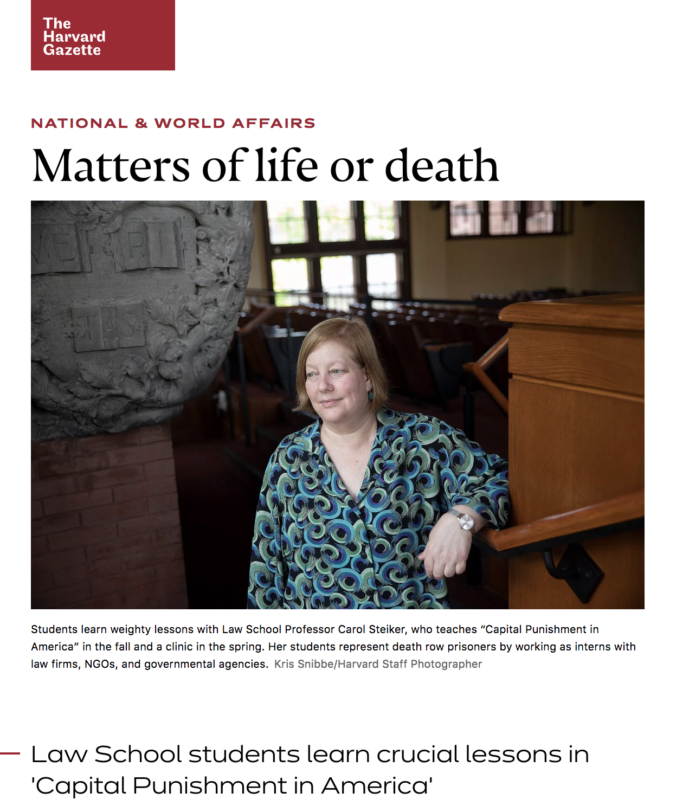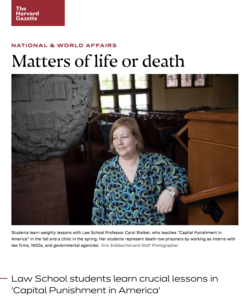The Harvard Gazette featured three PLAPers—Milo Inglehart, Megan Barnes, and Jake Meiseles—in an article about Harvard Law School’s capital punishment clinic. Meiseles, Barnes, and Inglehart took Professor Carol Steiker’s Capital Punishment Clinic as 2Ls during their January term. In the article, they describe the problematic and horrific use of the death penalty in the U.S. criminal justice system.
In the article, Meiseles explained, “Many of the men sentenced to death ended up there due to prosecutorial misconduct, inadequate lawyers, and terrible racial undercurrents in the criminal justice system, and some are innocent. It’s a terrible injustice that we as a society should not be tolerating.”
The criminal legal system affects a huge number of those in the U.S., and especially people of color. PLAPers are committed to fighting for justice at all stages of the legal system. PLAPers are not only involved in representing clients before the Massachusetts Parole Board and the Department of Corrections, but many of them also work to reform and combat many the system as a whole. For instance, PLAPers often take coursework about criminal law, as well as clinical courses where they practice under the supervision of an attorney. These include the Capital Punishment Clinic, taught by Professor Steiker, the Criminal Justice Institute, led by Professor Dehlia Umunna, and the Crimmigration Clinic, lead by Professor Phil Torrey.
For Inglehart, Barnes, and Meiseles, death penalty work demonstrated one of the ways our criminal legal system is fundamentally broken and unjust. Barnes believes that heightened awareness will lead to change. “If more people would educate themselves about what’s truly happening in capital punishment in America, how fundamentally unfair and unjust is, it would be abolished tomorrow,” she insisted, “if people understood that death row prisoners are not monsters, and that quite often they’re poor and lack adequate lawyers, there’d be calls for massive reforms.”
The time Inglehart, Meiseles, and Barnes spent working on capital punishment allowed them to see up close the outrageous nature of the system. Inglehart stated, “The main takeaways for me are first the overwhelming injustice of how the death penalty is meted out, and the importance of working to remedy that.”
These experiences strengthen the skills and dedication of student attorneys in their representation of clients. Much of PLAP’s work involves high stakes issues. For instance, PLAPers represent those with life sentences before the Massachusetts Parole Board. If successful, an incarcerated person with a life sentence will be able to leave prison. Additionally, PLAPers represent clients in disciplinary hearings before the Department of Corrections. In many of these hearings, their clients face tough sanctions, such as solitary confinement, a tool used regularly in the Massachusetts prison system.
PLAP is proud of its members for their work and dedication to their clients and especially proud of the work they do throughout the criminal legal system.


